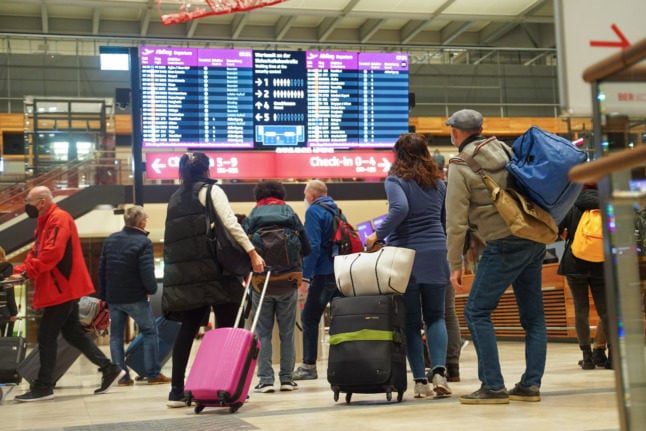Tens of thousands of air passengers in Germany are having their travel disrupted Monday after the Verdi union called an all-day warning strike among ground staff at four German airports, which include security personnel and aircraft maintenance workers.
All Monday departures from Berlin – accounting for some 200 flights – are cancelled, affecting some 27,000 passengers. Hamburg has also cancelled all its departures, accounting for another 123 flights. Meanwhile, Bremen has cancelled all flights – including both departures and arrivals. The vast majority of departures and arrivals in and out of Hanover are also cancelled.
Some flights arriving in both Berlin and Hamburg will still be able to land, although the airport authorities say this is up to the airline, meaning some planes are landing and many other arrivals are cancelled, depending on the airline. Travellers are advised to check and see if their flight is still departing to Berlin, Hamburg, or Hanover Monday.
The airport authorities have asked anyone who has a flight booked to depart from an affected airport on Monday to contact their airline to make alternate arrangements.
The union is calling the strike to demand higher compensation for weekend and evening work and better overtime pay for its workers. It is also seeking a 10.5 percent pay increase for the public sector workers it represents, or at least an extra €500 a month, to help workers deal with rising cost of living.
Previous rounds of negotiation between Verdi and public sector employers have broken down, leaving the union to warn that more strikes are to be expected.
This is the second time in a month that airports in Berlin, Hamburg, Bremen, and Hanover have been affected by strike action due to the current dispute.



 Please whitelist us to continue reading.
Please whitelist us to continue reading.
Member comments